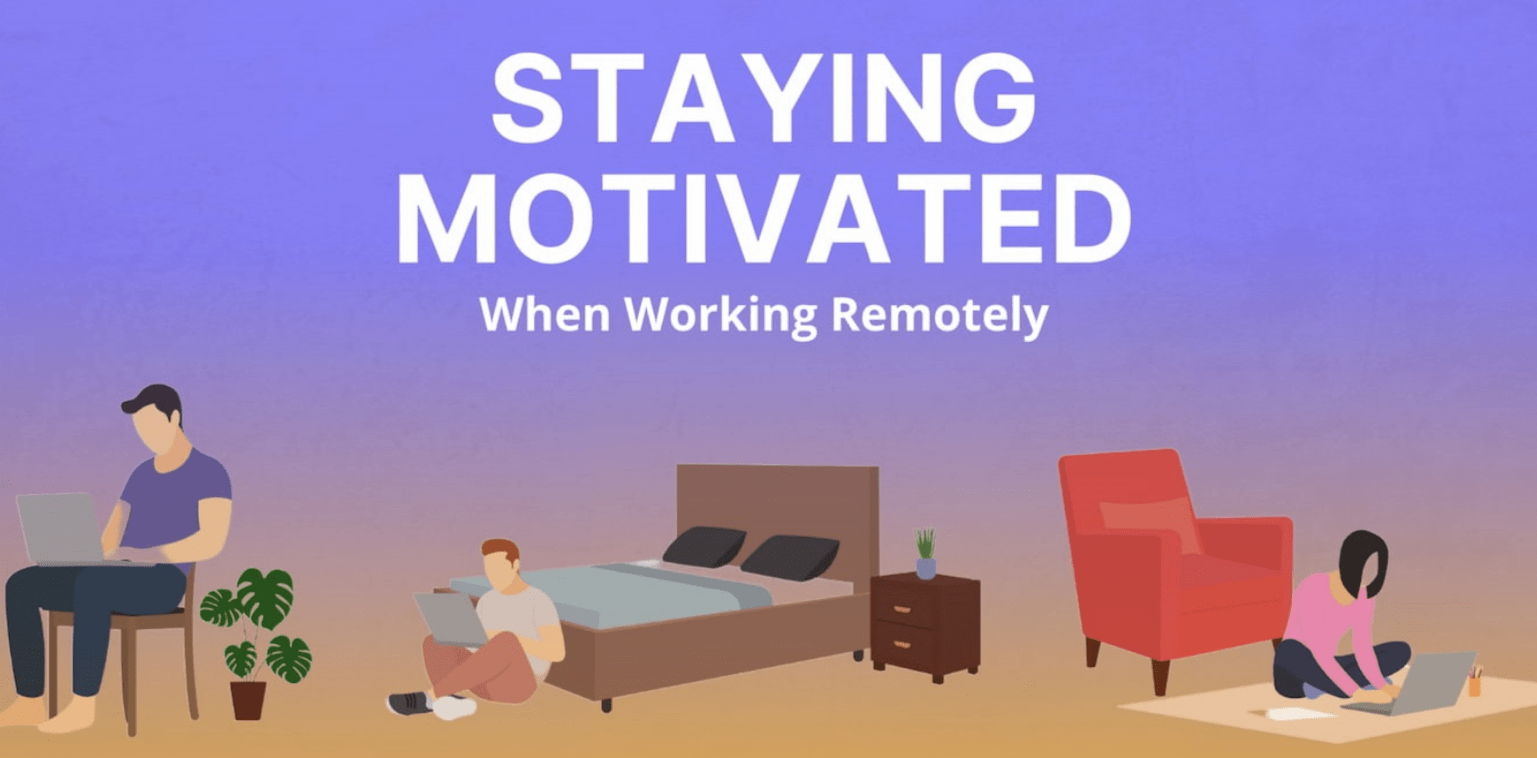How to Stay Motivated and Disciplined While Working Remotely

The boom in working from home has completely changed how we experience our work life. Working from home or from far, providing more flexibility and independence to raise the number of people. While working from home has a lot of advantages, it is not without its own challenges. Perhaps the top challenge that would-be telecommuters encounter is the ability to maintain focus and stay disciplined. With no office walls keeping you in check, distractions and procrastination can sneakily creep up on you.
If you have battled to stay focused or motivated whilst working from home, you are not alone. The good news is there are some effective strategies that can be applied to help you stay productive, focused and motivated. This is what we’re going to look at in this article — how to maintain your discipline and keep your stride as a remote worker.
The Challenges of Remote Work
Now, working remotely poses some challenges that the people working from home only by the outbreak of COVID–19 should understand, before jumping to the tips on how to stay motivated and disciplined.
Reduced Structure: Working from home or other places that aren't an office removes the structure of the typical 9 to 5 office. In the absence of any structure, one can easily lose motivation and struggle to stay on course with the intent of Grit.
Relentless Distractions at Home: One can not take out the idiosyncratic distractions associated with working from home, which include household activities, family members, pets etc.
Isolation: Remote workers can feel isolated or disconnected from their coworkers, leading to disengagement and, ultimately, a lack of motivation.
Time Management Challenges: Remote workers tend to find it hard to keep their time under control. When you have no daily commute or scheduled start time, it can be difficult to gauge when to begin or finish with your work, leading to many remote workers either overworking or underworking.
With that insight into the challenges, let us move towards some effective tweaks you can apply to your lifestyle to be more motivated and stay disciplined in your work from home regime.
1. Create a Dedicated Workspace
Creating a separate workspace is one of the initial steps in ensuring that you maintain discipline while working from home. Create a dedicated workspace to demarcate between work and your personal life.
Why Workspace Helps Simplicity:
- Minimizes distractions: A designated workspace makes it less tempting to succumb to distractions in a space where you might be relaxing or entertaining.
- Increases productivity: A serious work environment tells your brain it’s time to work and makes it easier to concentrate.
- Fosters Routine: A fixed workspace fosters routine and your day slowly starts to feel more normalized, a lot more structured.
How to Set Up Your Workspace:
Select a calm and cozy environment: Ideally, choose a location at home that is quiet and has little to no distractions. However, if you have others at home, doing so in a different room or with noise-canceling headphones will help reduce the noise from the surroundings.
This will have a necessary effect in maintaining your posture and avoiding discomforts through long working hours — invest in a proper chair, desk, and computer setup 😉
Tidy it up: One of the most significant actions you can take to enhance concentration and alleviate anxiety is to create a neat, disorder-free work area. Eliminate all distractions besides work items; donot keep anything that is not related to your work in your space.
2. Define your goals and your objectives
One of the most effective methods of motivating discipline is by pushing your clear objectives and priorities. Having clear, measurable goals makes it easy to know what you need to achieve, which makes it easier to stay the course.
- Why Goals are Important:
- Offers direction: Clear targets keep you on point and prevent you from straying off-course.
- Tracks progress: Setting targets usually allows you to measure your progress, which gives you a feeling of achievement as you check things off the list.
- Avoids burnout: Setting realistic goals ensures that you do not take on more than you can handle and stress yourself out.
How to Set Goals:
Set SMART goals: SMART is an acronym for Specific, Measurable, Achievable, Relevant, and Time-bound. By doing this, your aims are clear and achievable, which is what this structure is all about.
Divide and conquer: Large scale projects are terrifying. They become less overwhelming when you break them down into smaller, manageable tasks.
Focus on the task management: The big task management systems can come handy with concepts like Eisenhower matrix (urgent Vs important) or Pomodoro technique short-burst work with intervals.
3. Establish a Routine
One of the pillars of motivation and discipline is routine. Remote work means flexibility, but no routine means you procrastinate and find it hard to get back to business.
Why a Routine is Crucial:
- Prevents inconsistency: A work routine makes it simpler to understand when to begin and to end working, giving structure to the day or week.
- Offers a boost in productivity: When your day has structure, you are more focused and thus getting more done in a shorter amount of time.
- Encourages work-life balance: A schedule allows you to create boundaries between work time and personal time.
How to Make a Routine When You Work From Home:
- Begin your morning: Create a morning routine that sets you up for success for the rest of the day. Exercise, meditation, or even just getting a cup of coffee, setting up a process can align during the right guess of time.
- Plan Your Day by Time Blocking: Employ time blocking to allocate blocks of time for other activities. It helps you concentrate easily and stays to focus without any distractions.
- Establish normal working hours: You may not be working a traditional 9-to-5, but you need to have established working hours. This helps establish boundaries and decreases the temptation to put things off, or to do overwork.
4. Leverage productivity tools and techniques
Productivity tools are a godsend for remote workers looking to stay organized, manage their time, and stay focused. They can help you stay disciplined, stay focused, and minimize distractions.
Suggested Tools for Productivity:
Time management Tools: Apps such as Toggl or RescueTime can help you understand how you are spending your time and adjust accordingly if you are spending too long of a time on non-essential tasks.
Project Management Tools: For example, Asana, Trello, and Notion are great for managing the tasks and insights journal to make sure we stay focused and can look back on progress. You can use them to divide projects into smaller tasks, and maintain your pacing.
Productivity Techniques:
Pomodoro: One of the easiest time management systems to follow would be this one, which encourages working in bouts of 25 minutes followed by a 5-minute rest. And take a longer break after 4 sets.
Eat That Frog: The principle behind this is to do your hardest task first thing in the morning. Getting the hardest challenge out of the way makes the rest of the day seem easier.
5. Minimize Distractions
One of the most significant productivity murderers in remote work are distractions. Social media, household chores, and even family members are great distractions.
How to Minimize Distractions:
- Disable Notifications: If it is not important, disable notifications on phone and computer. Block distracting websites, keep the focus with Focus or Freedom.
- Wear headphones: Noise-canceling top headphones would help in nullifying any foolish noise and making the atmosphere more focused.
- Boundaries with others: When you work from home, you may share your space with partners, children, and/or roommates. Set some ground rules about your office hours and inform them how important it is to minimize disruptions!
6. Do Not Forget to Take a Break And Self-care
If you are disciplined, great, but you also need to take regular breaks and practice good self-care. That can burn you out and lower efficiency and productivity.
Why Breaks are Important:
- Increases creativity: Resting resets your mind, enabling you to re-engage with work, your creativity revitalized.
- Boosts mental well-being: Taking regular breaks helps relieve stress and drum up feelings of being overwhelmed which is needed to sustain motivation in the long-run.
- Enhances productivity: Scientific research indicate that taking breaks truly increases productivity because it allows your brain to reset.
Tips for Effective Breaks:
- Detouch Yourself from Your Desk: Get Away from Your Desk for Some Movement Take a little break from it, go for a walk, and get a snack or something to stretch out.
- Use break time for self-care: Make sure to utilize your breaks for things that can help to recharge yourself, like yoga, reading, and meditation.
- Plan your break intervals: do not wait until you feel burnt-out to take some time-off. Schedule Desks: Get away from work on regular intervals during the day.
For me personally send out an email once in a while, if you know my contact number send me a WhatsApp … staying connected with your team and network.
The downside of working remotely is that it can feel lonely and can cause your motivation to quite literally plummet. Keeping in touch with your team, clients and network is essential to avoid a sense of listlessness and disconnect.
- Regular check-ins: Set up check-ins with your team so you can receive project updates while creating accountability.
- Work with others: Working with other people also keeps you bonding and encourages you to work. Call on collaboration tools such as Slack, Zoom and Microsoft Teams to keep in touch.
- Explore digital communities: Participate in online communities or forums related to your field. Engaging with your peers can offer fresh perspectives and keep the fire lit.
Final Thoughts
Remote work comes with a myriad of perks, but it sure demands a lot of self-discipline, motivation and time management. Try to create an office-like environment; have long-term and short-term goals; make a routine; try to stay away from distractions; take small breaks from work; and you will be a more motivated person handling your tasks well. It is possible to come easier to work at home if you harness the correct concepts. Be zen, and focus on yourself, and live both sides of your remote work, The more balance you will have, sooner rather than later — this is how a remote work life will work for you.
